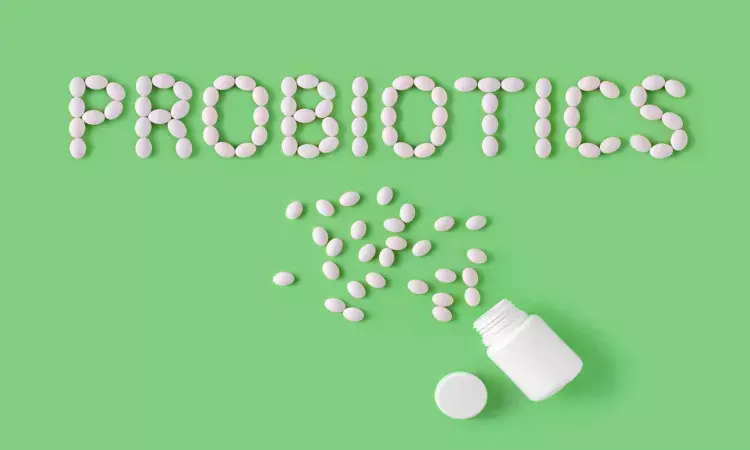- Home
- Medical news & Guidelines
- Anesthesiology
- Cardiology and CTVS
- Critical Care
- Dentistry
- Dermatology
- Diabetes and Endocrinology
- ENT
- Gastroenterology
- Medicine
- Nephrology
- Neurology
- Obstretics-Gynaecology
- Oncology
- Ophthalmology
- Orthopaedics
- Pediatrics-Neonatology
- Psychiatry
- Pulmonology
- Radiology
- Surgery
- Urology
- Laboratory Medicine
- Diet
- Nursing
- Paramedical
- Physiotherapy
- Health news
- Fact Check
- Bone Health Fact Check
- Brain Health Fact Check
- Cancer Related Fact Check
- Child Care Fact Check
- Dental and oral health fact check
- Diabetes and metabolic health fact check
- Diet and Nutrition Fact Check
- Eye and ENT Care Fact Check
- Fitness fact check
- Gut health fact check
- Heart health fact check
- Kidney health fact check
- Medical education fact check
- Men's health fact check
- Respiratory fact check
- Skin and hair care fact check
- Vaccine and Immunization fact check
- Women's health fact check
- AYUSH
- State News
- Andaman and Nicobar Islands
- Andhra Pradesh
- Arunachal Pradesh
- Assam
- Bihar
- Chandigarh
- Chattisgarh
- Dadra and Nagar Haveli
- Daman and Diu
- Delhi
- Goa
- Gujarat
- Haryana
- Himachal Pradesh
- Jammu & Kashmir
- Jharkhand
- Karnataka
- Kerala
- Ladakh
- Lakshadweep
- Madhya Pradesh
- Maharashtra
- Manipur
- Meghalaya
- Mizoram
- Nagaland
- Odisha
- Puducherry
- Punjab
- Rajasthan
- Sikkim
- Tamil Nadu
- Telangana
- Tripura
- Uttar Pradesh
- Uttrakhand
- West Bengal
- Medical Education
- Industry
Probiotics decreases atopic dermatitis risk in infants having family history: Study

China: Probiotics are beneficial for reducing the risk of atopic dermatitis (AD) in infants with a family history of the condition, finds a recent study published in the journal Archives of Medical Science.
The study by Jia-huan He, First Affiliated Hospital of Dalian Medical University, Dalian, Liaoning, China, and colleagues aimed to investigate the preventive effects of probiotics' oral administration on the severity and incidence of atopic dermatitis in infants.
The study included a total of 396 full-term infants. They were assigned to two groups; 132 newborns without a family history of AD were included in Group A and other 264 newborns were randomly divided into groups B and C. Those in group A and B were only breastfed while those in group C were administered probiotics in addition to breastfeeding.The information of all subjects was recorded, and the incidence of AD was followed up. The levels of serum IgE and IL-4 were measured at the age of 3 years.
Key findings of the study include:
- The incidence of AD in infants in group B was higher than that in group A at 3 months, 4–6 months, and 7–36 months after birth, together with increased symptom scores.
- For infants in group C, the incidence of AD at 4–6 months and 7–36 months after birth and the SCORAD scores at 0–3 months and 4–6 months after birth were lower than those in group B.
- The levels of IgE and IL-4 in group B were higher than those in groups A and C at 36 months old.
"Probiotics addition could favor the establishment of the intestinal microecological balance in the neonatal period, thereby reducing the incidence of AD, decreasing the levels of serum immune indexes and alleviating the severity of the disease," wrote the authors.
"Clinical study on prevention of atopic dermatitis by oral administration of probiotics in infants," is published in the journal Archives of Medical Science.
DOI: https://www.archivesofmedicalscience.com/Clinical-study-on-prevention-of-atopic-dermatitis-by-oral-administration-of-probiotics,127658,0,2.html
Dr Kamal Kant Kohli-MBBS, DTCD- a chest specialist with more than 30 years of practice and a flair for writing clinical articles, Dr Kamal Kant Kohli joined Medical Dialogues as a Chief Editor of Medical News. Besides writing articles, as an editor, he proofreads and verifies all the medical content published on Medical Dialogues including those coming from journals, studies,medical conferences,guidelines etc. Email: drkohli@medicaldialogues.in. Contact no. 011-43720751


